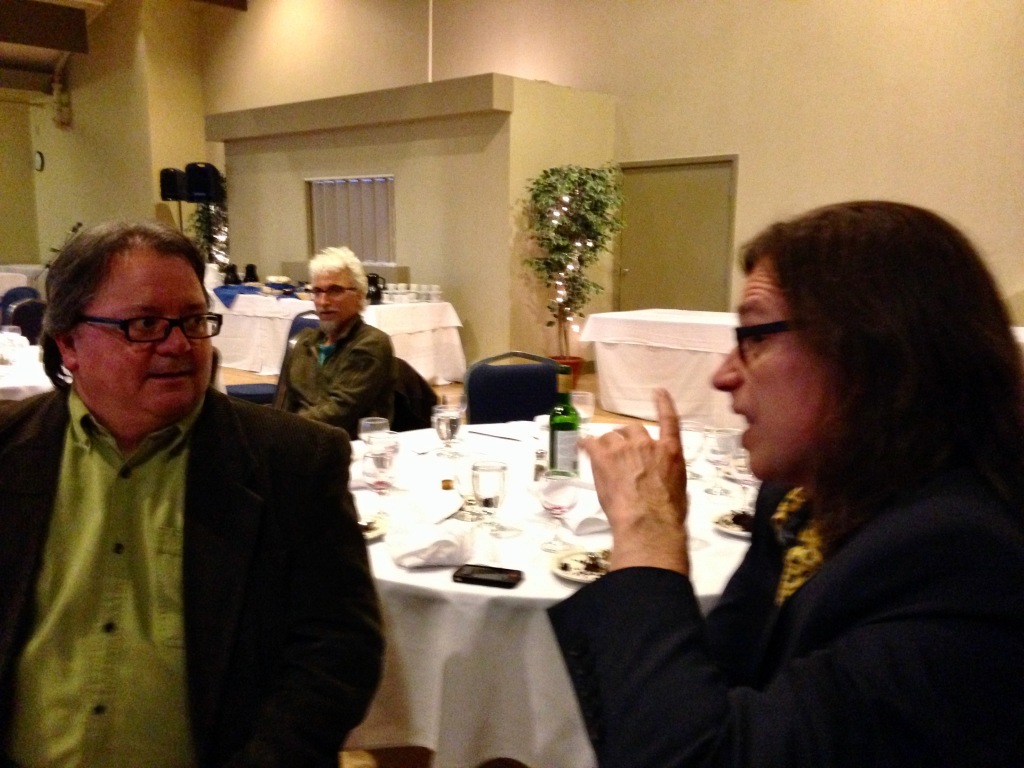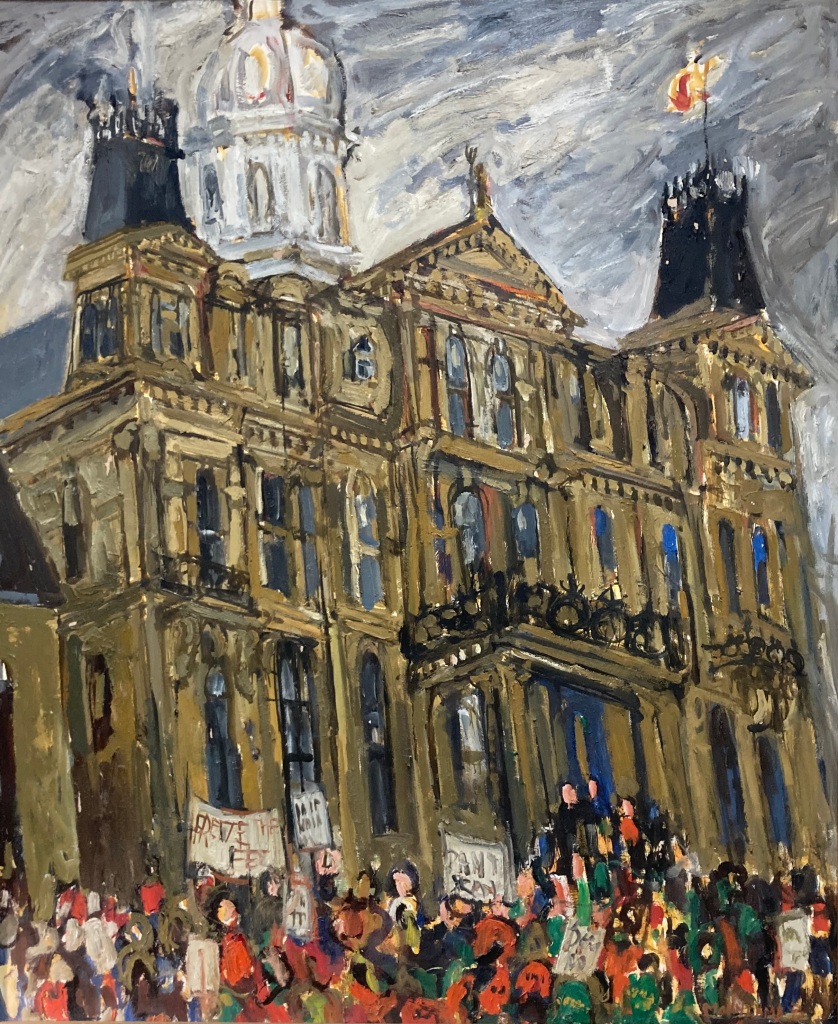Dynamism and determination, wisdom and warmth: the late Elizabeth Mancke (1954-2023) exhibited each of these positive attributes as well as countless others, as anyone who had the good fortune of knowing her can readily attest. Her recent passing is a massive loss for the many communities to which she contributed, whether as an historian, an engaged citizen, or, as was frequently the case, both. Composed by scholars and friends of Elizabeth’s from across the United States and Canada, the following reflections offer a glimpse of the breadth and profundity of her influence, and of the brilliant legacy she leaves to posterity. Cumulatively, they are the first of a two-part series; the second will appear on Thursday. Please feel free to provide your own reflections on Elizabeth’s life and work below.
I met Dr. Mancke in January 2017, when I took her graduate seminar in historical writing. She was one of my MA thesis examiners, and editor par excellence. In 2018, she became my PhD advisor. It was in this latter role that I got to know Elizabeth better – as a wise scholar, a human being in all her wonderful complexity, and as friend and confidante. My time with Elizabeth was too brief, barely six and a half years, but her positive influence on me will last a lifetime. Requiesce in pace, amica mea.
Ian Baird
Elizabeth was an incredible colleague and mentor: I’m forever grateful for her empathy, integrity, and intellectual passion. What made her such an exceptional professor and person is that, unlike most of us, Elizabeth was never either/or. She was both kind and tough, ambitious yet relaxed, serious yet playful. Elizabeth was both a wonderful talker and a sensitive listener, committed equally to research and teaching. Her work made major contributions to the international histories of the Atlantic world yet was rooted deeply and unapologetically in community and region. Unlike most historians of colonialism, she valued both transnational and local perspectives. Elizabeth was one of the few historians who maintained equally strong connections across American and Canadian academic networks. She was committed to people as much as principles and to community as much as academia. Elizabeth was one of the smartest people I’ve ever known, but she never made others feel inferior. She made me and countless others a better historian and person.
Jerry Bannister
When my MA advisor, David Philips, died suddenly on holiday in Queensland, Australia, one of his former Ph.D. students eulogized him by saying that his death was akin to the destruction of the Library of Alexandria. I admired the depths of his knowledge and mourned his loss, but, for me, while that ancient library of wisdom certainly was battered, it still stood.
With Elizabeth Mancke’s death, both the Library of Alexandria has been destroyed beyond repair and the pole star has been extinguished permanently from the sky. Such is the magnitude of her loss in my life. Like Polaris, Elizabeth had always been steadfast and steady, guiding my intellectual path in her gentle, ever-encouraging way. Unlike many of her other graduate students, she and I never lived in the same place. I came to her guidance and mentorship late in my doctoral journey. I had moved from Canada to the United States and wrote my dissertation in isolation. My original doctoral advisor allowed me the gift of freedom with little pressure to finish. I spent longer than I care to admit writing my 500-page tome. When Elizabeth took me on as her student, following the retirement of my original advisor, I had almost decided to quit my program. I had two small children and a Faculty appointment at a US institution. In a marathon four-hour phone call, she convinced me to finish it.
After I defended in December 2019, I believed that there would be an end to our phone calls and emails. But, every time I would ring, she would pick up and we’d talk for hours. If both of us did not have time to talk, we’d chat on Facebook messenger. We’d talk about my work and her work, my students and her students, my life in academia and her life in academia. We talked through the reshaping of my dissertation into a monograph–a monograph that she will now never read. “I eagerly await your next report,” she wrote often. I told her everything, always. We even spent a blissful half hour chatting online while I sat in the reading room of the Bibliothèque nationale de France in Paris. “Have you seen any references to the Gulf of St. Lawrence?” she asked. I’d get the next set of volumes pulled by the retrieval staff and write back or send pictures. By June, we talked every day. I’d send her my finds and she’d tell me how amazing they were.
I looked forward to visiting her in Fredericton in July. But I came three days after she was admitted to the hospital. I visited her there and I am happy that I did. When I came home, I thought that I would see Elizabeth in the fall for her Gulf Project Workshop in PEI. The workshop moved from Fall to Spring. She went for treatment and appeared to be doing well. And then, the worst happened and the guiding light of my life burnt out.
In a way, I am lucky. So much of my relationship with Elizabeth has been preserved in chat logs and emails. I have not yet had the fortitude to re-read her messages. But, even though she is gone, she and I will always share this history. Even in death, her preserved guidance and brilliant mind will shine on in my life, helping me navigate the path ahead, even though I now must walk it alone again.
Continue reading →








